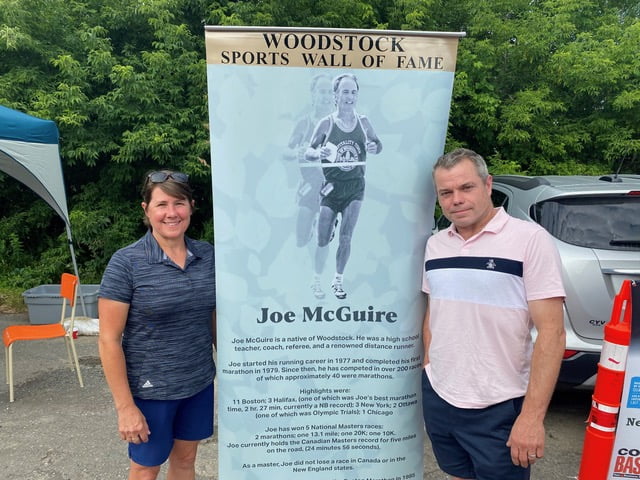Primary care providers ask for help from council to lobby government for ‘new and sustainable model’
As of Febr. 2, 2024, thanks to impending retirements and practice closures, the District of Carleton North will only have two primary care providers left to care for its 10,000 residents.
At the Jan. 23 District of Carleton North council meeting, Dr. Stuart Lockhart addressed the council, seeking their support in lobbying the government for assistance in helping to develop a “new and sustainable model of comprehensive primary care that is future-driven, accessible, and responsive to the needs of the local population.”
Lockhart explained that while the increasing age of doctors contributes to the healthcare crisis across Canada, the more significant issue is the decreasing number of graduates choosing to practice family medicine due to the costs of operating a primary care practice.
“Family physicians are required to operate their own business,” said Lockhart, who explained that it is up to the doctors to set up their practice – from finding their own space and setting it up to hiring and paying their staff, paying for their supplies, and more.
He said this is a disincentive for the many graduates leaving school with a significant amount of debt. Instead, an increasing number of graduates choose to work in hospital settings where they have no expense or headache associated with running their own business and receive a higher pay rate.
While Dr. Lockhart explained he understands the appeal of this, he stressed that the entire purpose of family medicine is to keep people out of the hospitals and ERs.
He explained family physicians help reduce the burden on our ERs and hospitals to avoid the type of crisis hospitals such as Dr. Everett Chalmers Hospital has been experiencing.
“We really think primary care is important,” Lockhart said. “The whole purpose is to keep people healthy and to organize things when they’re early in their course of investigations and referrals. We need to focus on improving and bolstering primary care so that our health care system remains functional.”
Lockhart noted that while the province has developed virtual care models such as eHealth, they are not sufficient or capable of replacing family care.
“They don’t provide longitudinal care – where someone knows you, your history, and that is really important when it comes to high quality care,” he said. “When you have patches of care delivered here and there, it’s not coordinated, it’s not smooth or comprehensive. The best care is delivered by a family physician.”
Lockhart expressed concern that rural areas are often poorly positioned to attract primary care physicians.
“[They are] easily overlooked — they’re not as large and they don’t make enough noise to attract healthcare professionals to their community,” he said.
Lockhart suggested that one solution to this is to pursue a modern team-based primary care model called the Patient Medical Home approach.
In this model, which is recommended by the College of Family Physicians of Canada, the clinic takes an interdisciplinary approach.
The patient may not always see a physician but another healthcare practitioner, such as a diabetes educator, a respiratory educator, or a dietician.
Lockhart said the goal is to deliver coordinated and team-based primary care.
“The model is not new,” said Lockhart, “but it has become a necessity because of the crisis that we’re in.”
He advised that other clinics in the province model themselves using this approach but that it has never been fully endorsed and supported at a provincial level with funding – which is what he is seeking. He hopes that the District will help him with this.
Lockhart acknowledged that the District of Carleton North has been very forward-thinking regarding recognizing that the area needs a different approach to healthcare.
“This facility is an important part of that. We’re lucky to have been a part of this,” said Lockhart. “I’m really hopeful that we can engage with others to make this a success so that we have comprehensive and accessible primary care that is sustainable and future driven – ready for the future of a collaborative care model that is going to be attractive for the physicians of the future and beneficial for patients in the area.”
Following Dr. Lockhart’s presentation, Deputy Mayor Karen Hargrove presented the council with a resolution recommending that “the Department of Health fully support and work in partnership with the District of Carleton North and the Carleton North Medical Clinic with the creation of a Provincial Primary Care Collaborative Clinic ‘Pilot Project’ that will recruit and retain more health care professionals to the Carleton North area.”
As part of the resolution, the District suggests adopting the Patient Medical Home model with the allocation of additional professionals from Horizon Health to the CNMC, that the CNMC be given primary responsibility in the physician recruitment process, with Horizon Health prioritizing that new doctors be allocated to the District of Carleton North, that the Department of Health provide funding to hire a nurse practitioner for the CNMC, and that the Department of Health provide a four-year recruitment and retention annual financial assistance program which will help health care professionals reduce their overhead costs.
The District will forward the resolution to Health Minister Bruce Fitch, Minister of Health.
Mayor Andrew Harvey stressed the importance of the resolution.
“We have a crisis – we have 10,000 people and a shortage of doctors,” he said. “We have a model that will work, we just need the province to step forward and fill in the gap. We’re not asking for the moon. We’re asking for help and support.”















